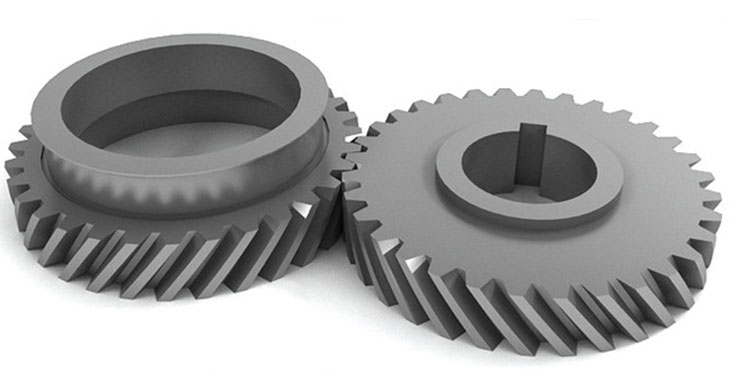
Helical gears play a vital role in various industrial machinery applications, where they provide efficient power transmission, precise motion control, and reliable performance. Let’s explore some case studies and analysis showcasing the role of helical gears in industrial machinery:
Case Study 1: Gearboxes in Industrial Conveyor Systems
Application: Helical gears are used in gearboxes of industrial conveyor systems, where they are responsible for transmitting power from the motor to the conveyor belt, allowing for the smooth movement of materials along the production line.
Analysis:
- Efficient Power Transmission: Helical gears provide efficient power transmission, allowing conveyor systems to handle heavy loads with minimal energy loss, contributing to energy efficiency in industrial operations.
- Smooth Operation: The helical tooth design ensures smooth gear engagement, reducing vibration and noise during conveyor operation, leading to a quieter and more comfortable working environment.
- Reliability: The robust construction and load-carrying capacity of helical gears make them suitable for continuous and demanding industrial applications, ensuring reliable operation with reduced downtime.
Case Study 2: Industrial Gear Pumps
Application: Helical gears are used in industrial gear pumps, where they transfer fluids from one part of the system to another, providing pressure and flow for various industrial processes.
Analysis:
- Precision Flow Control: Helical gears allow for precise flow control due to their accurate tooth profiles, making them suitable for metering and dosing applications in industrial processes.
- High Load Capacity: Industrial gear pumps often handle high pressures and temperatures. The high load-carrying capacity of helical gears ensures that they can withstand these demanding conditions, leading to reliable pump performance.
- Low Noise and Vibration: The helical tooth engagement reduces noise and vibration in gear pumps, contributing to a quieter and more stable operation, which is important in industrial settings.
Case Study 3: Rotary Kiln Drives in Cement Industry
Application: Helical gears are utilized in rotary kiln drives in the cement industry, where they transmit torque from the motor to the kiln, rotating it for cement clinker production.
Analysis:
- High Torque Transmission: Rotary kilns require high torque to rotate heavy loads of raw materials. Helical gears offer high torque capacity, making them suitable for this demanding application.
- Smooth Operation: The helical gear design ensures smooth and continuous motion of the kiln, preventing abrupt movements that could lead to mechanical stress and potential failure.
- Durability and Reliability: The robust construction and wear-resistant materials used in helical gears ensure longevity and reliability in continuous cement production processes.
Conclusion:
Helical gears play a critical role in various industrial machinery applications, providing efficient power transmission, smooth operation, and high reliability. The case studies and analysis demonstrate the significance of helical gears in enhancing the performance and efficiency of industrial machinery, contributing to the success of industrial processes across different sectors. The versatility and benefits of helical gears make them a popular choice for gear solutions in numerous industrial applications.
